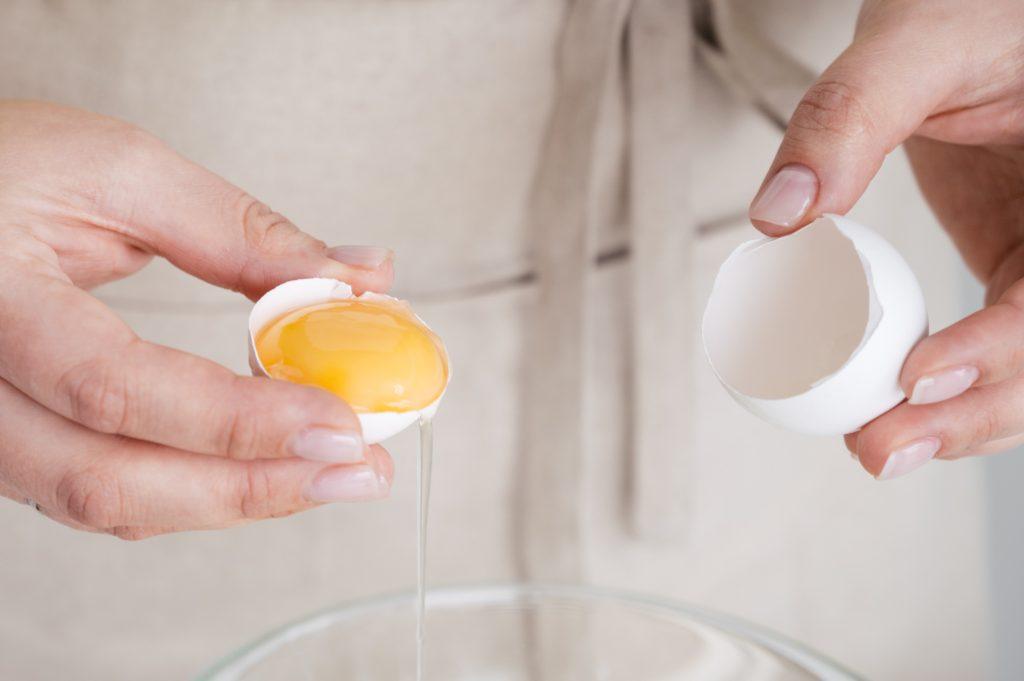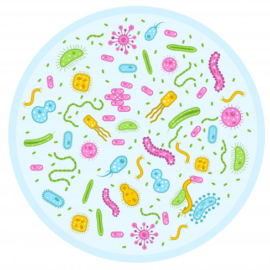
Raw liquid egg whites are a popular choice among health-conscious individuals due to their high protein content. But can you eat liquid egg white raw? We’ll explore the safety concerns and provide some tips for incorporating liquid egg whites into your diet.
WHAT ARE RAW EGG WHITES?
Raw egg whites are the clear fluid that separates from the yolk when a raw egg is cracked open. They are mostly composed of water (80%) and protein. Ovalbumin makes up more than half of the protein in the whites. 57.3% of it consists of a viscous or thick white layer. While 23.3% of it is made up of a thin layer linked to the inner membrane of the shell. Thick albumen covers the inner thin albumen and the chalaziferous layer of fresh eggs, keeping the yolk in the middle of the egg. The proportions of egg white layers are influenced by ambient conditions, hen breed, egg size, and production rate.
You might also like: How Whipping Turns Egg Whites Into A Foam
The percentages of conalbumin, ovomucid, and globulins (including lysozyme) that make up the protein in egg whites are lower. Whites also contain trace amounts of vitamins and minerals such as calcium, phosphorus, potassium, magnesium and zinc. Raw egg whites also contain small amounts of fats, but these are generally very low in calories.
THE RISKS OF EATING RAW EGG WHITES
Sure, egg whites healthy—rich in proteins, low in calories, fat and cholesterol. But eating them raw has its risks. Consumption of raw egg whites may lead to foodborne illnesses, such as salmonellosis. Salmonellosis is a type of infection caused by Salmonella bacteria. Salmonellosis may cause mild to serious symptoms. According to Centers for Disease Control and Prevention (CDC), individuals with Salmonella infection usually experience fever, diarrhea, and stomach cramps.
Egg whites get infected with Salmonellosis because Salmonella bacteria are present in the intestines of cattle and poultry. And when chickens lay eggs, the eggs get in contact with poop. The specie Salmonella enterica can infect egg whites, and as the egg ages, the yolk membrane breaks down, allowing S. enterica to infect the egg yolk.
Aside from Salmonellosis, there is also a risk of biotin (B7) deficiency. Biotin is a vitamin that helps convert food into energy. Biotin deficiency causes several illnesses such skin rashes, thinning of hair, seizure, and numbness. Fortunately, this deficiency rarely occurs in healthy individuals since the daily requirement of the vitamin is low. But the risk increases if an individual consumes raw liquid egg whites on a regular basis. Eating raw egg whites regularly causes biotin insufficiency because avidin in egg white closely binds biotin, rendering it inaccessible for intestinal absorption.
HEALTH BENEFITS OF EATING LIQUID RAW EGG WHITE
Despite the dangers of potentially consuming bacteria in a raw egg white, there are many health benefits associated with it. Raw egg whites contain about half of the protein found in an egg and a variety of vitamins and minerals. These include Vitamin A, D, E, K as well as Niacin and Folate. Additionally, due to their high protein content, egg whites can aid in muscle growth and strength.
You might also like: Why You Should Not Use Pasteurized Egg (Whites)
There are several ways you can do to get these nutritional benefits. Raw liquid egg whites are very versatile. You can use them as a protein-packed and low carb food replacement. They are also often an ingredient in health shakes and smoothies.
CONSUMING LIQUID EGG WHITE RAW
When it comes to consuming raw liquid egg whites, safety should always be the top priority. If you are used to consuming liquid egg whites raw prepared yourself, there is a much better and easier way than this. The next time you visit a supermarket, head over to the section where the refrigerated products are located. You can find there liquid egg whites in cartons that you can purchase. Liquid egg whites are beaten and pasteurized before packaging to make them safe to eat.
In the United States, egg products are pasteurized as mandated by the Food Safety and Inspection Service of the United States Department of Agriculture (USDA). Pasteurization is the rapid heating of products, such as egg whites, at a specific temperature for a set period of time in order to destroy harmful bacteria or pathogens. Pasteurized liquid egg whites require no further cooking, and can be stored for future use in an airtight container at room temperature for up to one week.
You might also like: Is It Really Safe To Eat Raw Eggs?
You can also heat the egg whites before eating them to ensure they are cooked completely through and safe to consume. If you’re unsure of the safety level of your liquid egg whites, don’t take any chances with your health – avoid eating them raw!


